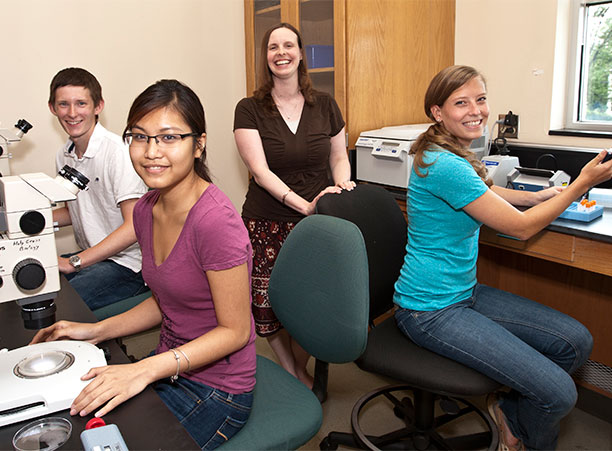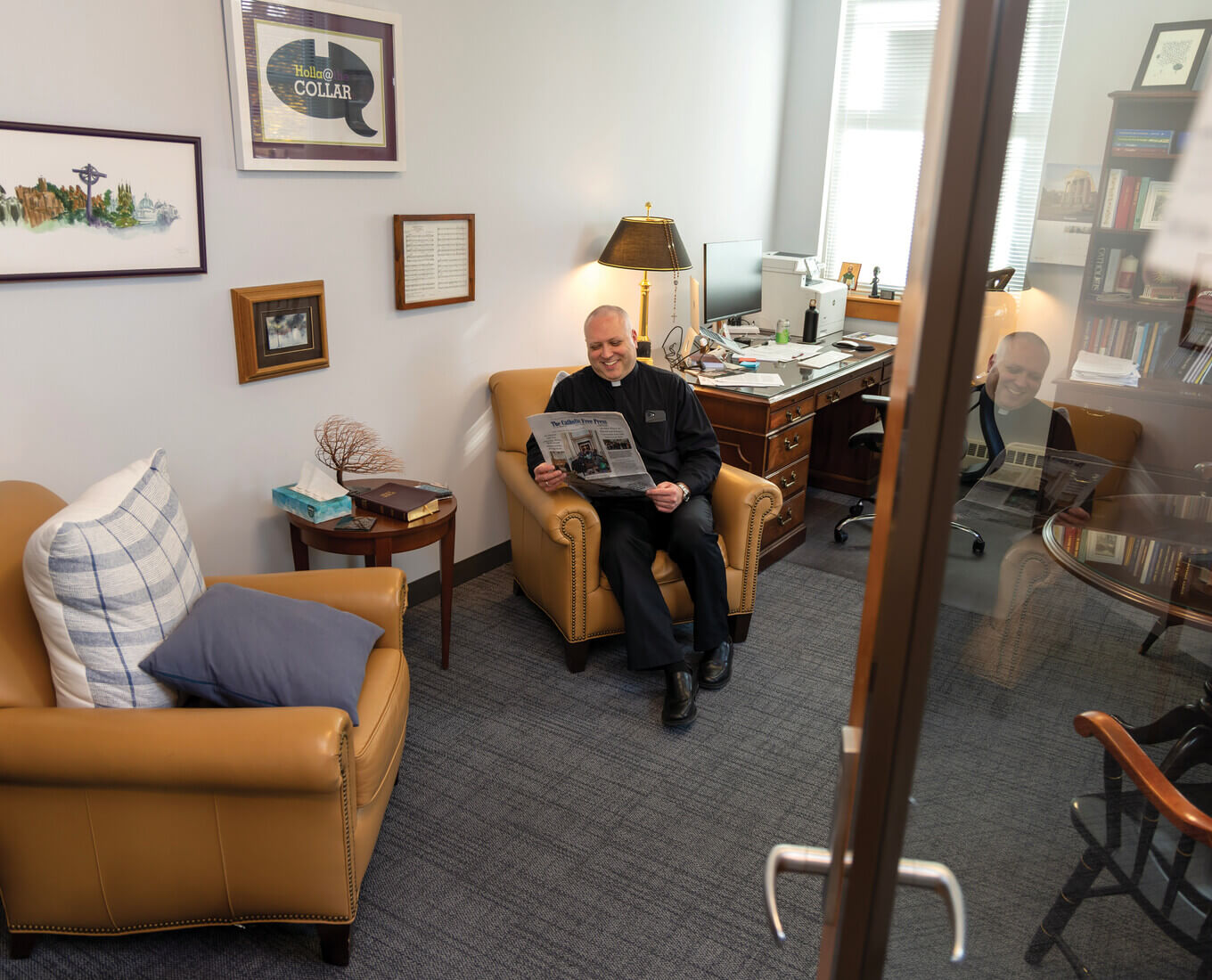 Michelle Mondoux, assistant professor of biology at the College of the Holy Cross, is featured on The Academic Minute (broadcast on WAMC Northeast Public Radio), for her research on the effects of a high-glucose diet in C. elegans.
Michelle Mondoux, assistant professor of biology at the College of the Holy Cross, is featured on The Academic Minute (broadcast on WAMC Northeast Public Radio), for her research on the effects of a high-glucose diet in C. elegans.
According to Mondoux, “Americans consume a lot of sugar – every day, the average person eats about twice as much as the American Heart Association recommends.” Along with Holy Cross undergraduate Mike Mastroianni ’16 and recent alumni Marjorie Liggett ’13 and Mike Hoy ’14, Mondoux examines the effects of a high-glucose diet in male Caenorhabditis elegans, small nematode worms that use an insulin-signaling system similar to humans. While the effects of excessive sugar in the diet are known, manifesting as obesity and type 2 diabetes in humans, exactly how sugar affects cells on a molecular level still remains in question.
“Several labs have demonstrated that feeding worms a high-glucose diet causes them to die sooner and be less healthy in their old age,” Mondoux explains. “However, none of these experiments have included males.” Mondoux and her students found that a dichotomy exists in C. elegens: “glucose regulates lifespan and aging in a sex-specific manner, with beneficial effects on males compared to toxic effects on hermaphrodites.”
“Our data shows that even within the same species, the effects of a high-glucose diet are not ‘universal’. More research is needed to understand how a high-glucose diet produces these benefits for male worms as they age, and how this might be relevant to humans. Eventually, understanding why glucose has benefits for male worms as they age could help us to combat the effects of a high-sugar diet for humans,” Mondoux says.
The Academic Minute is a syndicated segment and also appears on Insider Higher Ed.
- Listen to The Academic Minute.
This “Holy Cross in the News item” is by Emma Collins ‘16.

